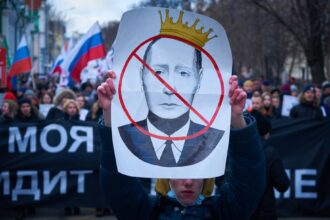The Rosenberg spy case emerged during a tumultuous period in American history, marked by the escalating tensions of the Cold War. In the aftermath of World War II, the United States and the Soviet Union found themselves locked in a fierce ideological battle, with each superpower vying for global influence. This geopolitical rivalry fostered an atmosphere of paranoia and suspicion, particularly regarding espionage activities.
The fear of communist infiltration permeated American society, leading to widespread investigations and accusations against individuals suspected of disloyalty or subversion. In this context, Julius and Ethel Rosenberg, a married couple living in New York City, became central figures in one of the most infamous espionage cases of the era. Both were members of the Communist Party, and their political affiliations raised eyebrows among government officials.
The couple was accused of conspiring to transmit atomic secrets to the Soviet Union, a charge that would ultimately lead to their arrest and trial. The case not only highlighted the intense fears surrounding communism but also underscored the lengths to which the U.S. government would go to protect its national security interests during a time of heightened anxiety.
Key Takeaways
- The Rosenberg Spy Case involved allegations of Soviet espionage during the Cold War.
- Julius and Ethel Rosenberg were arrested and tried for passing atomic secrets to the Soviet Union.
- Cold War tensions played a significant role in the Rosenberg Spy Case, fueling fears of communist infiltration in the United States.
- The allegations of Soviet espionage raised questions about the extent of Soviet influence in the United States during the Cold War.
- The Rosenberg Case continues to be a source of controversy and debate, with ongoing discussions about the Rosenbergs’ guilt or innocence.
The Arrest and Trial of Julius and Ethel Rosenberg
The arrest of Julius and Ethel Rosenberg took place in July 1950, following an extensive investigation by federal authorities. The couple was implicated in a network of espionage that allegedly included passing classified information about atomic weapons to the Soviets. Their arrest was part of a broader crackdown on suspected communists, fueled by the growing fear that the United States was losing its technological edge in the nuclear arms race.
The FBI’s investigation was bolstered by testimony from several key witnesses, including David Greenglass, Ethel’s brother, who claimed that he had provided the Rosenbergs with sensitive information. The trial of Julius and Ethel Rosenberg began in March 1951 and quickly became a media sensation. The prosecution presented a case that relied heavily on circumstantial evidence and witness testimonies, while the defense argued that the couple was being scapegoated for political reasons.
The trial was marked by intense public scrutiny, with many viewing it as a reflection of the broader societal fears surrounding communism. Despite their defense team’s efforts, the jury ultimately found the Rosenbergs guilty of conspiracy to commit espionage. The verdict sparked outrage among their supporters, who believed that the couple had been unfairly targeted due to their political beliefs.
The Role of Cold War Tensions in the Rosenberg Spy Case

The Cold War served as a backdrop for the Rosenberg spy case, influencing both public perception and government actions throughout the proceedings. As tensions between the United States and the Soviet Union escalated, so too did fears of espionage and subversion within American society. The Rosenbergs’ trial occurred during a time when anti-communist sentiment was at its peak, fueled by events such as the Korean War and the discovery of Soviet spies within the U.S.
government. This climate of fear created an environment where accusations could be made with little evidence, as many Americans were eager to root out perceived threats to national security. The Cold War context also shaped the legal proceedings against the Rosenbergs.
The government framed their actions as part of a larger conspiracy to undermine American democracy and security. Prosecutors argued that by sharing atomic secrets with the Soviets, the Rosenbergs had endangered countless lives and contributed to a global threat. This narrative resonated with a public already on edge due to international tensions, making it difficult for many to view the couple’s actions through a lens of fairness or justice.
As a result, the trial became emblematic of the broader struggle between democracy and communism, with the Rosenbergs serving as scapegoats in a battle that extended far beyond their individual case.
The Allegations of Soviet Espionage
| Year | Number of Allegations | Outcome |
|---|---|---|
| 1945 | 10 | Investigation ongoing |
| 1950 | 25 | Several convictions |
| 1960 | 15 | Controversial trials |
| 1970 | 5 | Acquittals |
The allegations against Julius and Ethel Rosenberg centered on claims that they had engaged in espionage on behalf of the Soviet Union, specifically by providing critical information about atomic bomb technology. The prosecution’s case relied heavily on testimonies from individuals who claimed to have been involved in espionage activities alongside the Rosenbergs. David Greenglass, Ethel’s brother, played a pivotal role in this narrative, asserting that he had shared classified documents with Julius, who then passed them on to Soviet agents.
The gravity of these allegations cannot be overstated; during this period, atomic weapons were seen as the ultimate symbol of power and security. The idea that American citizens could betray their country by sharing such sensitive information with a rival superpower sent shockwaves through society.
S.
security, suggesting that the Rosenbergs’ actions had far-reaching implications for national defense. This framing not only intensified public outrage but also solidified the government’s resolve to pursue harsh penalties for those accused of espionage.
The Controversy Surrounding the Rosenberg Case
The Rosenberg case quickly became one of the most controversial trials in American history, sparking heated debates about justice, civil liberties, and the role of government in prosecuting alleged traitors. Critics argued that the trial was marred by procedural irregularities and that the evidence presented against the couple was largely circumstantial. Many believed that their political beliefs played a significant role in their conviction, raising questions about whether they received a fair trial in an atmosphere charged with anti-communist sentiment.
Supporters of the Rosenbergs contended that they were victims of a witch hunt fueled by paranoia rather than legitimate concerns about national security. They pointed to inconsistencies in witness testimonies and questioned the motivations behind those who testified against them. Prominent intellectuals and activists rallied to their defense, arguing that punishing individuals for their political beliefs set a dangerous precedent for civil liberties in America.
This controversy surrounding their trial highlighted broader societal tensions regarding freedom of expression and the limits of government power during a time when fear often overshadowed reason.
The Execution of Julius and Ethel Rosenberg

Despite widespread protests and appeals for clemency, Julius and Ethel Rosenberg were executed on June 19, 1953, at Sing Sing Prison in New York. Their execution marked a grim culmination of a case that had captivated public attention for years. The decision to carry out capital punishment for espionage was unprecedented at the time and reflected both the severity with which the government viewed their actions and its determination to send a message about national security.
The execution itself was shrouded in controversy and emotional turmoil. Many viewed it as an act of state-sanctioned vengeance rather than justice, particularly given the contentious nature of their trial and the ongoing debates about their guilt or innocence. In their final moments, Julius and Ethel maintained their innocence, asserting that they had not betrayed their country but rather had been victims of political persecution.
Their deaths ignited further protests and calls for justice from supporters who believed that they had been wrongfully convicted.
The Legacy of the Rosenberg Spy Case
The legacy of the Rosenberg spy case continues to resonate in contemporary discussions about justice, civil liberties, and government overreach. Their trial and execution became emblematic of an era marked by fear and suspicion, serving as a cautionary tale about the potential consequences of allowing political ideology to influence legal proceedings. The case raised important questions about due process and whether individuals could receive fair treatment when accused of crimes related to national security.
In addition to its legal implications, the Rosenberg case has left an indelible mark on American culture and memory. It has inspired numerous books, films, and artistic works that explore themes of betrayal, loyalty, and moral ambiguity. The story of Julius and Ethel Rosenberg serves as a reminder of how easily fear can distort perceptions of justice and lead to tragic outcomes for individuals caught in its crosshairs.
The Impact on Cold War Politics
The Rosenberg spy case had significant implications for Cold War politics, influencing both domestic policy and international relations during this critical period. In America, it fueled anti-communist sentiment and contributed to an atmosphere where accusations could be made without substantial evidence. This environment led to increased scrutiny of individuals with leftist affiliations and heightened fears about communist infiltration within various sectors of society.
On an international scale, the case underscored the deepening divide between East and West during the Cold War. The execution of two American citizens for espionage sent shockwaves through both domestic and foreign audiences, reinforcing perceptions of America as a nation willing to take extreme measures to protect its interests. It also served as propaganda for Soviet leaders who could portray themselves as defenders against American imperialism while rallying support for their own regime.
The Aftermath of the Rosenberg Case
In the years following their execution, public opinion regarding Julius and Ethel Rosenberg began to shift as new information emerged about their case. Declassified documents revealed previously undisclosed details about espionage activities during this period, leading some historians to reassess the extent of their involvement in Soviet intelligence operations. While some maintained that they were guilty conspirators who deserved their fate, others argued that they were victims caught up in a larger political struggle.
The aftermath also saw continued activism from those who believed in their innocence or felt that they had been unjustly punished for their beliefs. Various organizations emerged advocating for civil liberties and justice reform in response to what they viewed as an egregious miscarriage of justice. This ongoing dialogue about fairness within legal systems continues to resonate today as societies grapple with issues related to national security versus individual rights.
The Continuing Debate Over the Rosenbergs’ Guilt
The debate over Julius and Ethel Rosenberg’s guilt remains unresolved decades after their execution. Scholars continue to analyze evidence from various angles while considering historical context surrounding their trial. Some argue that new revelations about espionage activities during this period suggest greater culpability than previously acknowledged; others maintain that they were scapegoats used by authorities seeking to quell fears surrounding communism.
This ongoing discourse reflects broader societal tensions regarding justice systems’ ability to fairly adjudicate cases involving national security concerns versus individual rights protections. As new generations engage with this complex history through academic inquiry or popular culture representations, questions about guilt or innocence persist—serving as reminders not only of specific events but also larger themes related to power dynamics within societies grappling with ideological divides.
The Rosenberg Case in Popular Culture
The story of Julius and Ethel Rosenberg has permeated popular culture over time, inspiring numerous artistic interpretations across various mediums including literature, film, theater, music—and even visual arts—each exploring different facets of their lives and legacy. Works such as plays like “The Children’s Hour” by Lillian Hellman or films like “The Rosenbergs: An American Tragedy” delve into themes surrounding betrayal while examining societal responses toward perceived threats. These cultural representations often reflect contemporary anxieties about justice systems’ integrity amid political turmoil—inviting audiences into conversations about morality within legal frameworks while challenging them to consider implications surrounding individual rights versus collective security concerns throughout history.
As such narratives continue evolving through modern lenses—whether through documentaries or fictional retellings—they serve not only as reflections on past events but also as cautionary tales urging vigilance against repeating mistakes made during times fraught with fear-driven responses toward dissenting voices within societies grappling with ideological divides.
The story of Julius and Ethel Rosenberg, who were executed in 1953 for allegedly passing atomic secrets to the Soviet Union, remains one of the most controversial espionage cases in American history. Their trial and subsequent execution sparked widespread debate about the fairness of their trial and the extent of their guilt. For those interested in exploring more about espionage during the Cold War era, an insightful article can be found on the War Room website. This article delves into the intricacies of espionage tactics and the political climate of the time, providing a broader context to the Rosenberg case. You can read more about it by visiting this link.
WATCH THIS 🤯How the KGB Stole America’s Future
FAQs
What is the real story of the Rosenberg spies?
The real story of the Rosenberg spies refers to the case of Julius and Ethel Rosenberg, who were American citizens convicted of espionage for the Soviet Union during the Cold War.
Who were Julius and Ethel Rosenberg?
Julius and Ethel Rosenberg were a married couple who were accused of being Soviet spies and passing atomic secrets to the Soviet Union.
What were Julius and Ethel Rosenberg accused of?
Julius and Ethel Rosenberg were accused of being part of a spy ring that passed atomic secrets to the Soviet Union during the 1940s and early 1950s.
What was the outcome of the Rosenberg trial?
Julius and Ethel Rosenberg were found guilty of espionage and were sentenced to death. They were executed in 1953.
What is the controversy surrounding the Rosenberg case?
The Rosenberg case remains controversial, with some believing that they were wrongly convicted and others believing that they were indeed guilty of espionage.
What impact did the Rosenberg case have on Cold War politics?
The Rosenberg case heightened Cold War tensions and fueled anti-communist sentiment in the United States. It also had a significant impact on public opinion and government policies regarding espionage and national security.




